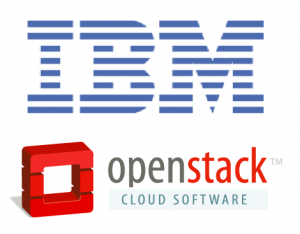IBM all in with OpenStack
Ajit Deshpande - March 12, 2013 - 0 Comments
 We discussed back in January about Open Compute, the Rackspace and Facebook driven open-source server initiative, and about how there was growing momentum for commoditization in hardware for the cloud. Well, last week brought news that signaled similar momentum for the OpenStack project, an open and scalable operating system for building private and public clouds, with IBM announcing that all of its cloud services and software will be based on the OpenStack architecture. Since joining the OpenStack Foundation in April’12, IBM apparently has been the number 3 code contributor to OpenStack, so last week’s announcement wasn’t completely earth-shattering, but even so, getting a services giant of IBM’s caliber gives OpenStack a huge fillip.
We discussed back in January about Open Compute, the Rackspace and Facebook driven open-source server initiative, and about how there was growing momentum for commoditization in hardware for the cloud. Well, last week brought news that signaled similar momentum for the OpenStack project, an open and scalable operating system for building private and public clouds, with IBM announcing that all of its cloud services and software will be based on the OpenStack architecture. Since joining the OpenStack Foundation in April’12, IBM apparently has been the number 3 code contributor to OpenStack, so last week’s announcement wasn’t completely earth-shattering, but even so, getting a services giant of IBM’s caliber gives OpenStack a huge fillip.
OpenStack as a cloud platform is part of a still-evolving competitive space. For private clouds, there are multiple players inclusive of OpenStack, with a variety of pricing models, features and interoperability constraints. Amongst these, OpenStack is differentiated in that it is the only one operated by a Foundation as opposed to a corporate entity. In the public cloud, AWS clearly leads the way, with OpenStack (pushed by Rackspace) and Google Compute Engine being the other key players. In this context, the IBM backing helps OpenStack significantly with customer outreach as well as with peer pressure on other IT services firms, both of which will spur distribution (in a way reminiscent of IBM’s backing of Linux in 1999). As mentioned in the public domain, OpenStack now becomes a legitimate challenger to AWS (especially for interoperability and for ease of instantiation) and could dent VMware’s dominance in server virtualization.
So what does this mean for entrepreneurs? Does a services giant like IBM entering this business mean that the potential for building standalone, highly successful startups in this domain has decreased? Probably so – wider adoption should reduce valuations and exit multiples, and so we should soon expect consolidation in this space. Mainstream cloud adoption has gotten a tailwind, but for innovators, the cloud might finally be nearing maturation!